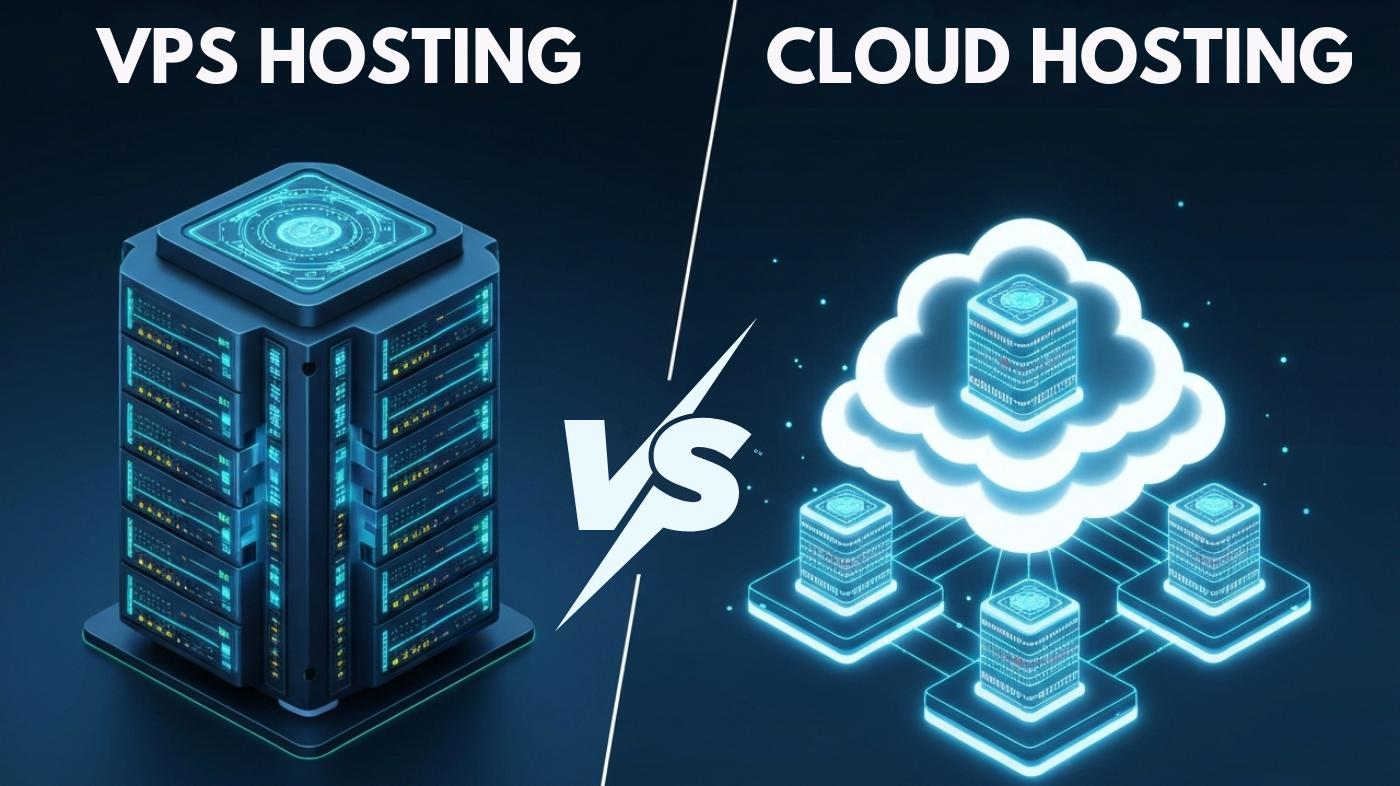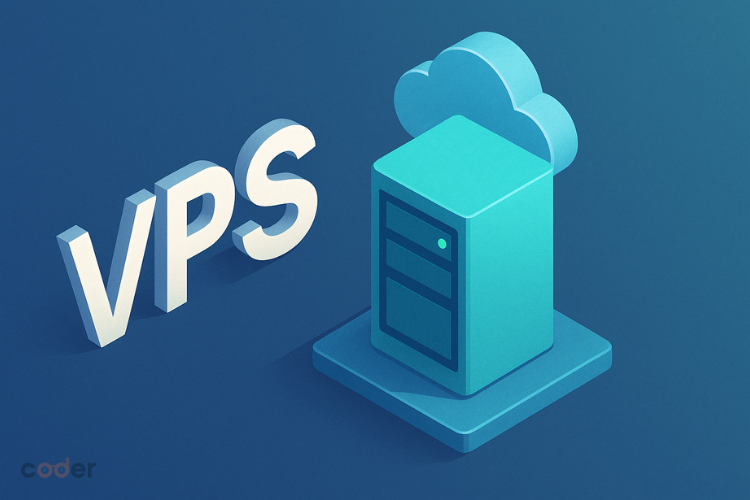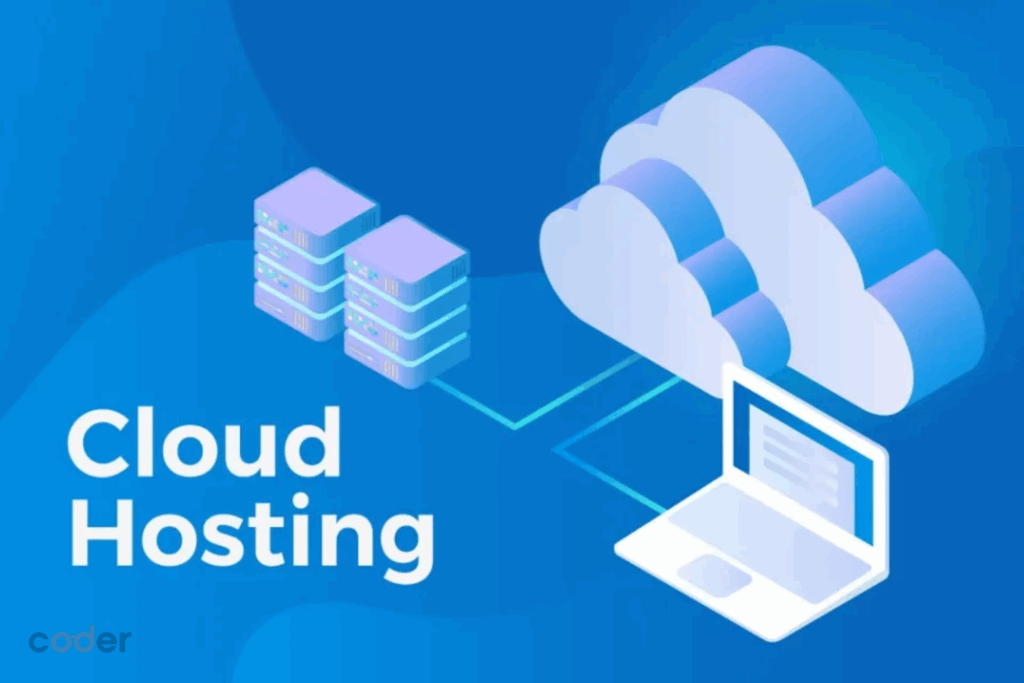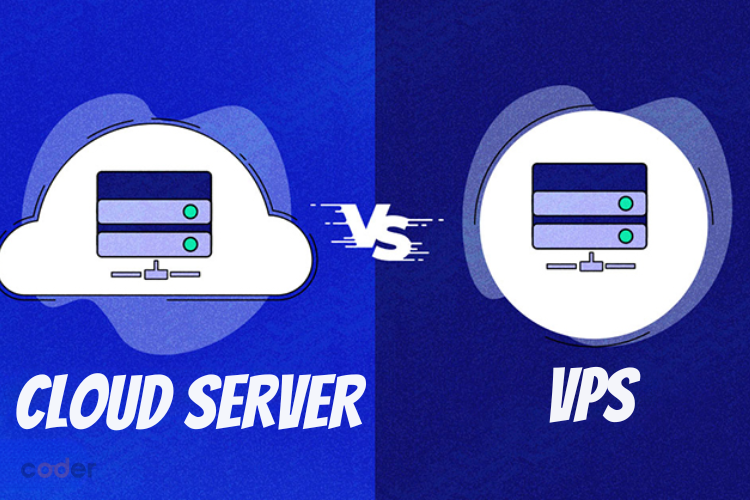
The eCommerce industry is evolving at lightning speed. From AI-driven personalization to mobile-first shopping experiences, online businesses need powerful hosting solutions that can scale, secure, and sustain growth. For years, the debate between VPS vs Cloud Hosting has shaped the way eCommerce platforms are deployed. As we move into 2026 and beyond, the question becomes even more relevant: which hosting model is best for modern eCommerce stores?
This article explores the strengths and limitations of VPS and cloud hosting, helping you choose the right infrastructure for your business needs.
Table of Contents
I. VPS Hosting: A Quick Refresher

A Virtual Private Server (VPS) offers dedicated resources within a shared physical server. It strikes the perfect balance between shared hosting and dedicated hosting, giving eCommerce businesses improved performance without the high costs of running an entire physical server.
Advantages of VPS Hosting for eCommerce:
- Dedicated resources: Guaranteed RAM, CPU, and storage for reliable performance.
- Scalability: Easy to upgrade as traffic grows.
- Control: Root access allows customization of your hosting environment.
- Cost efficiency: More affordable than dedicated servers while delivering near-equal performance.
For small to mid-sized eCommerce stores, Cantech’s best VPS hosting for ecommerce ensures a smooth shopping experience without breaking the budget.
II. Cloud Hosting: A Modern Powerhouse

Cloud hosting distributes your website or application across multiple virtual servers. Instead of relying on a single machine, your store runs on a network of interconnected servers that provide flexibility and resilience.
Advantages of Cloud Hosting for eCommerce:
- On-demand scalability: Instantly adjust resources during sales, holidays, or traffic spikes.
- High availability: Even if one server fails, others take over, minimizing downtime.
- Global reach: Deploy applications closer to users worldwide.
- Pay-as-you-go model: Pay only for the resources you consume.
For businesses experiencing unpredictable traffic or aiming to scale rapidly, ecommerce cloud hosting delivers unmatched flexibility and uptime.
III. VPS vs Cloud Hosting: Key Comparisons for eCommerce

1. Performance
VPS provides consistent performance with dedicated resources, ideal for stores with steady traffic. Cloud hosting, on the other hand, excels in handling fluctuating loads, offering virtually limitless scalability.
2. Cost
VPS hosting is generally more predictable in pricing. Cloud hosting can become costlier if traffic spikes significantly, but the pay-as-you-go model provides flexibility for seasonal stores.
3. Scalability
VPS hosting scales vertically—you upgrade to a larger plan as needs grow. Cloud hosting scales horizontally, allowing you to expand across multiple servers almost instantly.
4. Security
Both hosting models provide strong security features. VPS gives you more control over your environment, while cloud hosting benefits from distributed architecture, reducing the risk of single-point failures.
5. Customization
VPS hosting allows developers to fine-tune server configurations. Cloud hosting offers APIs and automation tools that support CI/CD pipelines and advanced workflows.
IV. Which Hosting Fits Your eCommerce Business in 2026?
- VPS Hosting Works Best If:
- You run a small to mid-sized eCommerce store.
- You want predictable pricing and resource allocation.
- You prefer more control over configurations and security.
- You run a small to mid-sized eCommerce store.
- Cloud Hosting Works Best If:
- You run a fast-scaling enterprise or expect fluctuating traffic.
- You require high availability across multiple regions.
- You prefer pay-as-you-go flexibility with advanced automation.
- You run a fast-scaling enterprise or expect fluctuating traffic.
V. Trends Shaping the Future of Hosting

- AI-Powered Hosting: Machine learning will optimize resource allocation automatically, ensuring eCommerce stores maintain speed during sudden traffic spikes.
- Sustainable Hosting: Eco-friendly data centers will play a bigger role, especially for brands focusing on green initiatives.
- Edge Computing: With cloud and VPS integrating edge networks, eCommerce businesses will deliver faster page loads by serving data closer to users.
- Hybrid Models: Businesses may increasingly combine VPS for cost-effective operations and cloud for scalability, creating hybrid infrastructures.
Final Thoughts
Both VPS and cloud hosting have vital roles in the future of eCommerce. VPS offers affordability, control, and reliable performance for businesses that prefer stable growth. Cloud hosting, meanwhile, is tailored for enterprises that need elasticity, resilience, and global availability.
As 2026 unfolds, the decision won’t just be about VPS vs cloud—it will be about aligning your hosting choice with your long-term eCommerce strategy. Whether you choose VPS for control or cloud for scalability, the key lies in matching your hosting environment with your business goals.











![[SALE OFF] Discount 30% All Premium Extensions On Christmas And New Year 2025 christmas-and-new-year-2025](https://landofcoder.b-cdn.net/wp-content/uploads/2024/12/christmas-and-new-year-2025-1-218x150.png)






